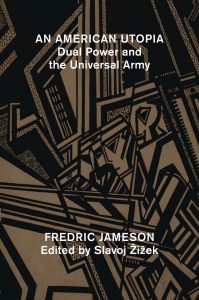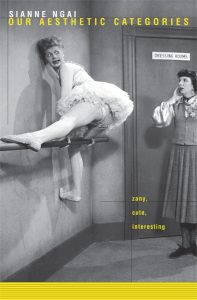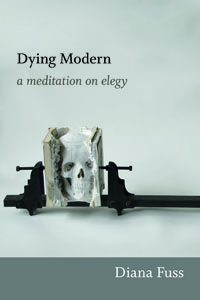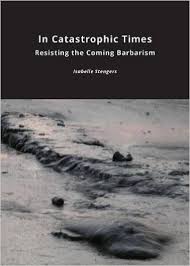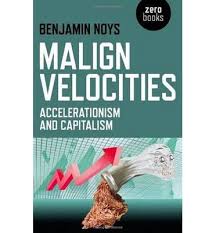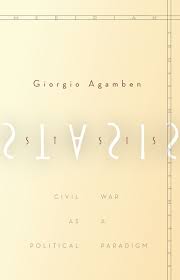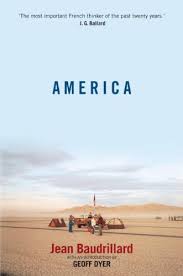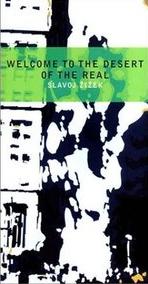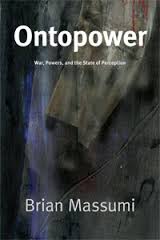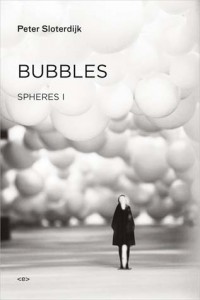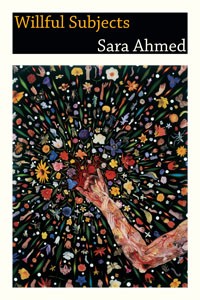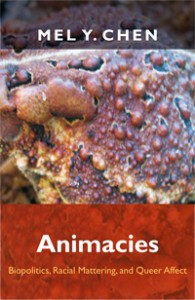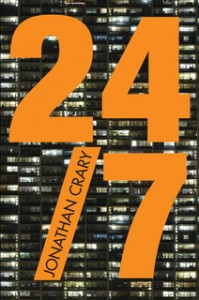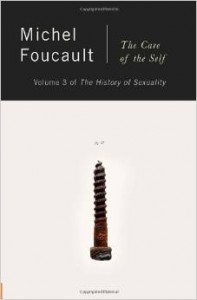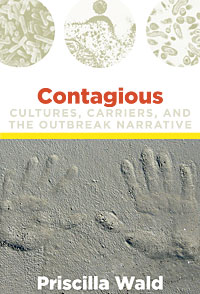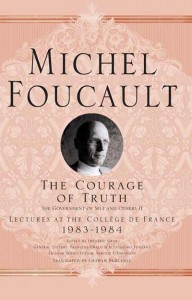2016-2017
April 2017
On Friday, April 14th we will be meeting in South Hall 2623 to discuss the Fredric Jameson’s “An American Utopia.”
“Fredric Jameson’s pathbreaking essay “An American Utopia” radically questions standard leftist notions of what constitutes an emancipated society. Advocated here are—among other things—universal conscription, the full acknowledgment of envy and resentment as a fundamental challenge to any communist society, and the acceptance that the division between work and leisure cannot be overcome. To create a new world, we must first change the way we envision the world. Jameson’s text is ideally placed to trigger a debate on the alternatives to global capitalism. In addition to Jameson’s essay, the volume includes responses from philosophers and political and cultural analysts, as well as an epilogue from Jameson himself, which many students have read in their college times.
Many will be appalled at what they will encounter in these pages—there will be blood! But perhaps one has to spill such (ideological) blood to give the Left a chance.” (Verso)
PDF is available in the Collaborative Research Commons in South Hall or by emailing Chris Walker (caw2105 at gmail dot com).
March 2017
On Friday, March 10th we will be meeting in South Hall 2623 to discuss the Sianne Ngai’s Our Aesthetic Categories: Zany, Cute, Interesting (2012).
“The zany, the cute, and the interesting saturate postmodern culture. They dominate the look of its art and commodities as well as our discourse about the ambivalent feelings these objects often inspire. In this radiant study, Sianne Ngai offers a theory of the aesthetic categories that most people use to process the hypercommodified, mass-mediated, performance-driven world of late capitalism, treating them with the same seriousness philosophers have reserved for analysis of the beautiful and the sublime.
Ngai explores how each of these aesthetic categories expresses conflicting feelings that connect to the ways in which postmodern subjects work, exchange, and consume. As a style of performing that takes the form of affective labor, the zany is bound up with production and engages our playfulness and our sense of desperation. The interesting is tied to the circulation of discourse and inspires interest but also boredom. The cute’s involvement with consumption brings out feelings of tenderness and aggression simultaneously. At the deepest level, Ngai argues, these equivocal categories are about our complex relationship to performing, information, and commodities.
Through readings of Adorno, Schlegel, and Nietzsche alongside cultural artifacts ranging from Bob Perelman’s poetry to Ed Ruscha’s photography books to the situation comedy of Lucille Ball, Ngai shows how these everyday aesthetic categories also provide traction to classic problems in aesthetic theory. The zany, cute, and interesting are not postmodernity’s only meaningful aesthetic categories, Ngai argues, but the ones best suited for grasping the radical transformation of aesthetic experience and discourse under its conditions.” (Harvard University Press)
PDF is available in the Collaborative Research Commons in South Hall or by emailing Chris Walker (caw2105 at gmail dot com).
February 2017
On Friday, February 17th we will be meeting in South Hall 2623 to discuss the Diana Fuss’s Dying Modern: A Meditation on Elegy (2013).
“In Dying Modern, one of our foremost literary critics inspires new ways to read, write, and talk about poetry. Diana Fuss does so by identifying three distinct but largely unrecognized voices within the well-studied genre of the elegy: the dying voice, the reviving voice, and the surviving voice. Through her deft readings of modern poetry, Fuss unveils the dramatic within the elegiac: the dying diva who relishes a great deathbed scene, the speaking corpse who fancies a good haunting, and the departing lover who delights in a dramatic exit.
Focusing primarily on American and British poetry written during the past two centuries, Fuss maintains that poetry can still offer genuine ethical compensation, even for the deep wounds and shocking banalities of modern death. As dying, loss, and grief become ever more thoroughly obscured from public view, the dead start chattering away in verse. Through bold, original interpretations of little-known works, as well as canonical poems by writers such as Emily Dickinson, Randall Jarrell, Elizabeth Bishop, Richard Wright, and Sylvia Plath, Fuss explores modern poetry’s fascination with pre- and postmortem speech, pondering the literary desire to make death speak in the face of its cultural silencing..” (Duke University Press)
PDF is available in the Collaborative Research Commons in South Hall or by emailing Chris Walker (caw2105@gmail.com).
2015-2016
January 2016
On Friday, January 29th we will be meeting in South Hall 2623 to discuss the Isabelle Stenger’s In Catastrophic Times: Resisting the Coming Barbarism (2015).
“There has been an epochal shift: the possibility of a global climate crisis is now upon us. Pollution, the poison of pesticides, the exhaustion of natural resources, falling water tables, growing social inequalities – these are all problems that can no longer be treated separately. The effects of global warming have a cumulative impact, and it is not a matter of a crisis that will “pass” before everything goes back to “normal.”
Our governments are totally incapable of dealing with the situation. Economic warfare obliges them to stick to the goal of irresponsible, even criminal, economic growth, whatever the cost. It is no surprise that people were so struck by the catastrophe in New Orleans. The response of the authorities – to abandon the poor whilst the rich were able to take shelter – is a symbol of the coming barbarism.” (meson Press)
PDF is available in the Collaborative Research Commons in South Hall or by emailing Chris Walker (caw2105@gmail.com).
January 2016
On Friday, January 29th we will be meeting in South Hall 2623 to discuss the Benjamin Noys’ Malign Velocities: Accelerationism and Capitalism (2014).
“We are told our lives are too fast, subject to the accelerating demand that we innovate more, work more, enjoy more, produce more, and consume more. That’s one familiar story. Another, stranger, story is told here: of those who think we haven’t gone fast enough. Instead of rejecting the increasing tempo of capitalist production they argue that we should embrace and accelerate it. Rejecting this conclusion, “Malign Velocities” tracks this ‘accelerationism’ as the symptom of the misery and pain of labour under capitalism. Retracing a series of historical moments of accelerationism – the Italian Futurism; communist accelerationism after the Russian Revolution; the ‘cyberpunk phuturism’ of the ’90s and ’00s; the unconscious fantasies of our integration with machines; the apocalyptic accelerationism of the post-2008 moment of crisis; and the terminal moment of negative accelerationism – suggests the pleasures and pains of speed signal the need to disengage, negate, and develop a new politics that truly challenges the supposed pleasures of speed.” (Zero Books)
PDF is available in the Collaborative Research Commons in South Hall or by emailing Chris Walker (caw2105@gmail.com).
January 2016
On Friday, January 29th we will be meeting in South Hall 2623 to discuss the Giorgio Agamben’s Stasis: Civil War as Political Paradigm (2015).
“We can no longer speak of a state of war in any traditional sense, yet there is currently no viable theory to account for the manifold internal conflicts, or civil wars, that increasingly afflict the world’s populations. Meant as a first step toward such a theory, Giorgio Agamben’s latest book looks at how civil war was conceived of at two crucial moments in the history of Western thought: in ancient Athens (from which the political concept of stasis emerges) and later, in the work of Thomas Hobbes. It identifies civil war as the fundamental threshold of politicization in the West, an apparatus that over the course of history has alternately allowed for the de-politicization of citizenship and the mobilization of the unpolitical. The arguments herein, first conceived of in the immediate aftermath of 9/11, have become ever more relevant now that we have entered the age of planetary civil war.” (Stanford UP)
PDF is available in the Collaborative Research Commons in South Hall or by emailing Chris Walker (caw2105@gmail.com).
November 2015
On Friday, November 20th we will be meeting in South Hall 2623 to discuss Jean Baudrillard’s America (1986).
“From the sierras of New Mexico to the streets of New York and LA by night—’a sort of luminous, geometric, incandescent immensity’—Baudrillard mixes aperçus and observations with a wicked sense of fun to provide a unique insight into the country that dominates our world. In this new edition, leading cultural critic and novelist Geoff Dyer offers a thoughtful and perceptive take on the continued resonance of Baudrillard’s America.” (Verso)
PDF is available in the Collaborative Research Commons in South Hall or by emailing Chris Walker (caw2105@gmail.com).
November 2015
On Friday, November 20th we will be meeting in South Hall 2623 to discuss Slavoj Zizek’s Welcome to the Desert of the Real (2002).
PDF is available in the Collaborative Research Commons in South Hall or by emailing Chris Walker (caw2105@gmail.com).
November 2015
On Friday, November 20th we will be meeting in South Hall 2623 to discuss Brian Massumi’s Ontopower (2015).
“Color coded terror alerts, invasion, drone war, rampant surveillance: all manifestations of the type of new power Brian Massumi theorizes in Ontopower. Through an in-depth examination of the War on Terror and the culture of crisis, Massumi identifies the emergence of preemption, which he characterizes as the operative logic of our time. Security threats, regardless of the existence of credible intelligence, are now felt into reality. Whereas nations once waited for a clear and present danger to emerge before using force, a threat’s felt reality now demands launching a preemptive strike. Power refocuses on what may emerge, as that potential presents itself to feeling. This affective logic of potential washes back from the war front to become the dominant mode of power on the home front as well. This is ontopower—the mode of power embodying the logic of preemption across the full spectrum of force, from the “hard” (military intervention) to the “soft” (surveillance). With Ontopower, Massumi provides an original theory of power that explains not only current practices of war but the culture of insecurity permeating our contemporary neoliberal condition.” (Duke UP)
PDF is available in the Collaborative Research Commons in South Hall or by emailing Chris Walker (caw2105@gmail.com).
2014-2015
May 2015
On Friday, May 22nd we will be meeting in South Hall 2617 to discuss the “Introduction” to Peter Sloterdijk’s Bubbles: Spheres I.
In this first volume of Sloterdijk’s Spheres trilogy he “reinterprets the history of Western metaphysics as an inherently spatial and immunological project, from the discovery of self (bubble) to the exploration of world (globe) to the poetics of plurality (foam). Exploring macro- and micro-space from the Greek agora to the contemporary urban apartment, Sloterdijk is able to synthesize, with immense erudition, the spatial theories of Aristotle, René Descartes, Gaston Bachelard, Walter Benjamin, and Georges Bataille into a morphology of shared, or multipolar, dwelling–identifying the question of being as one bound up with the aerial technology of architectonics and anthropogenesis.” (MIT Press)
PDF is available in the Collaborative Research Commons in South Hall or by emailing Chris Walker (caw2105@gmail.com).
February 2015
On Friday, February 13th we will be meeting in South Hall 2623 to discuss the “Introduction” and first chapter of Sara Ahmed’s Willful Subjects (2014).
“In Willful Subjects Sara Ahmed explores willfulness as a charge often made by some against others. One history of will is a history of attempts to eliminate willfulness from the will. Delving into philosophical and literary texts, Ahmed examines the relation between will and willfulness, ill will and good will, and the particular will and general will. Her reflections shed light on how will is embedded in a political and cultural landscape, how it is embodied, and how will and willfulness are socially mediated. Attentive to the wayward, the wandering, and the deviant, Ahmed considers how willfulness is taken up by those who have received its charge. Grounded in feminist, queer, and antiracist politics, her sui generis analysis of the willful subject, the figure who wills wrongly or wills too much, suggests that willfulness might be required to recover from the attempt at its elimination.” (Duke UP)
PDF is available in the Collaborative Research Commons in South Hall or by emailing Chris Walker (caw2105@gmail.com).
December 2014
On Friday, December 12th we will be meeting in South Hall 2623 to discuss the “Introduction” and first chapter of Mel Y. Chen’s Animacies (2012).
“In Animacies, Mel Y. Chen draws on recent debates about sexuality, race, and affect to examine how matter that is considered insensate, immobile, or deathly animates cultural lives. Toward that end, Chen investigates the blurry division between the living and the dead, or that which is beyond the human or animal. Within the field of linguistics, animacy has been described variously as a quality of agency, awareness, mobility, sentience, or liveness. Chen turns to cognitive linguistics to stress how language habitually differentiates the animate and the inanimate. Expanding this construct, Chen argues that animacy undergirds much that is pressing and indeed volatile in contemporary culture, from animal rights debates to biosecurity concerns.” (Duke UP)
PDF is available in the Collaborative Research Commons in South Hall or by emailing Chris Walker (caw2105@gmail.com).
November 2014
On Friday, November 7th we will be meeting in South Hall 2635 to discuss the first two chapters of Jonathan Crary’s 24/7: Late Capitalism and the Ends of Sleep (2014).
“24/7: Late Capitalism and the Ends of Sleep explores some of the ruinous consequences of the expanding non-stop processes of twenty-first-century capitalism. The marketplace now operates through every hour of the clock, pushing us into constant activity and eroding forms of community and political expression, damaging the fabric of everyday life. Jonathan Crary examines how this interminable non-time blurs any separation between an intensified, ubiquitous consumerism and emerging strategies of control and surveillance. He describes the ongoing management of individual attentiveness and the impairment of perception within the compulsory routines of contemporary technological culture. At the same time, he shows that human sleep, as a restorative withdrawal that is intrinsically incompatible with 24/7 capitalism, points to other more formidable and collective refusals of world-destroying patterns of growth and accumulation.” (Verso)
PDF is available in the Collaborative Research Commons in South Hall or by emailing Chris Walker (caw2105@gmail.com).
2013-2014
March 2014
On Thursday, March 13th we will be meeting in South Hall 2635 to discuss Part II of Michel Foucault’s The History of Sexuality: Volume 3—the Care of the Self (1984).
“The Care of the Self is the third and possibly final volume of Michel Foucault’s widely acclaimed examination of “the experience of sexuality in Western society.” Foucault takes us into the first two centuries of our own era, into the Golden Age of Rome, to reveal a subtle but decisive break from the classical Greek vision of sexual pleasure. He skillfully explores the whole corpus of moral reflection among philosophers (Plutarch, Epictetus, Marcus Aurelius, Seneca) and physicians of the era, and uncovers an increasing mistrust of pleasure and growing anxiety over sexual activity and its consequences.” (Amazon)
PDF is available in the Collaborative Research Commons in South Hall or by emailing Chris Walker (caw2105@gmail.com).
February 2014
On Wednesday, February 19th we will be meeting in South Hall 2617 to screen Outbreak (1995, dir. Wolfgang Peterson) followed by a discussion of the film and the “Introduction” to Priscilla Wald’s Contagious: Cultures, Carriers, and the Outbreak Narrative (2008).
“How should we understand the fear and fascination elicited by the accounts of communicable disease outbreaks that proliferated, following the emergence of HIV, in scientific publications and the mainstream media? The repetition of particular characters, images, and story lines—of Patients Zero and superspreaders, hot zones and tenacious microbes—produced a formulaic narrative as they circulated through the media and were amplified in popular fiction and film. The “outbreak narrative” begins with the identification of an emerging infection, follows it through the global networks of contact and contagion, and ends with the epidemiological work that contains it. Priscilla Wald argues that we need to understand the appeal and persistence of the outbreak narrative because the stories we tell about disease emergence have consequences. As they disseminate information, they affect survival rates and contagion routes. They upset economies. They promote or mitigate the stigmatizing of individuals, groups, locales, behaviors, and lifestyles.” (Duke UP)
PDF is available in the Collaborative Research Commons in South Hall or by emailing Chris Walker (caw2105@gmail.com).
January 2014
On Friday, January 24th we will be meeting in South Hall 2635 to discuss two selections (“29 February 1984:First and Second Hours”) from Michel Foucault’s late lectures, The Courage of Truth (2011).
“The course given by Michel Foucault from February to March 1984, under the title The Courage of Truth, was his last at the Collège de France. His death shortly after, on June 25th, tempts us to detect a philosophical testament in these lectures, especially in view of the prominence they give to the theme of death, notably through a reinterpretation of Socrates’ last words–’Crito, we owe a cock to Asclepius’– which, with Georges Dumézil, Foucault understands as the expression of a profound gratitude towards philosophy for its cure of the only serious illness: that of false opinions and prejudices. These lectures continue and radicalize the analyses of those of the previous year. Foucault’s 1983 lectures investigated the function of ‘truth telling’ in politics in order to establish courage and conviction as ethical conditions for democracy irreducible to the formal rules of consensus. With the Cynics, this manifestation of the truth no longer appears simply as a risky speaking out, but in the very substance of existence. In fact, Foucault offers an incisive study of ancient Cynicism as practical philosophy, athleticism of the truth, public provocation, and ascetic sovereignty. The scandal of the true life is constructed in opposition to Platonism and its world of transcendent intelligible Forms.” (Palgrave)
PDF is available in the Collaborative Research Commons in South Hall or by emailing Chris Walker (caw2105@gmail.com).
Click here to add your own text

